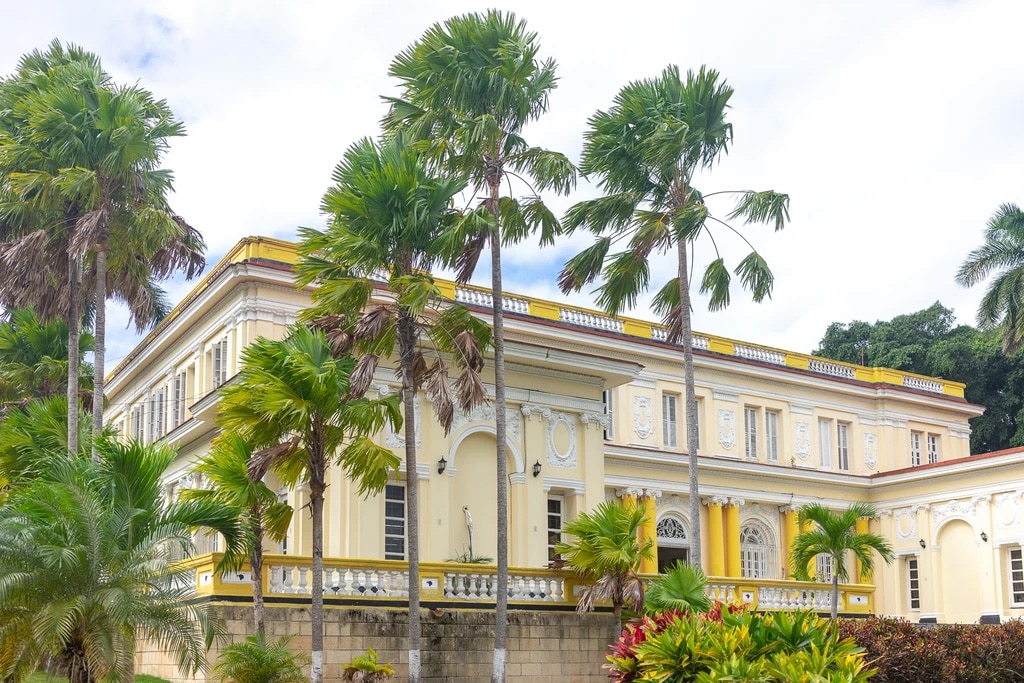Events, News from Havana
Cuban cigar shortage
Cuban cigar shortage
Cuban cigar shortage
La Couronne S.A.,
Potential shortages of Cuban cigars and major stockouts of other prestigious terroirs such as the Dominican Republic, Nicaragua and Honduras.
On a summer evening in 2016, sitting on the terrace of a famous golf club in the Lake Geneva region, I shared my concerns about the cigar market with the aficionados with whom I was sharing this beautiful evening.
The impact of multiple factors such as strong demand from so-called emerging countries, the lack of skilled labor in producing countries, possible political instability in these countries, the boom in e-commerce, the high value of the Swiss franc and the significant enthusiasm of a new European clientele could, I told them, have a profound impact on our business.
We were living in a period of abundance of cigars on the market, with no apparent problems, but we underestimated the possibility of endemic problems and preferred to put off until the Greek calends possible actions that would be difficult to take but would save our industry, so that it would be more sustainable in the medium and long term. With these considerations more upstream from distribution and, of course, the end consumer, the aficionados surrounding me that evening looked at me with a wry, circumspect, self-confident air, almost embarrassed in my place for what I had to say.
They were so far from imagining that the situation could change so quickly, just 3 years after that meal. Cigar aficionados could still walk into cigar stores and "play" the competition, challenge the merchant's margins against the public selling prices imposed by the importer, and leave satisfied with their purchases, the quality of the cigars they bought, the service they received, and the expertise of their specialist.
"It was a great time," said a cigar-loving friend of mine, to whom I had to announce a few weeks ago that those days were over, that they belonged to the past, and that a return to a "certain normality" was far from imminent!
In fact, for over fifteen years, the price of cigars in Switzerland had been extremely low. So low, in fact, that over thirty specialist stores were forced to close their doors, lay off their staff and lose their life savings without being able to repay the bank loan they had taken out a few years earlier.
"Once an entrepreneur, always an entrepreneur", a maxim with which I absolutely agree. Taking risks, understanding the business in detail, managing work and staff, controlling, checking, traveling, analyzing determining factors, forging friendships, making them grow, investing, starting over. These are the fundamentals of entrepreneurship.
"If you talk the talk, you have to walk the walk! " ... "if you talk about your projects, your ambitions, your dreams, you have to do everything to achieve them!" Another well-known maxim in the USA; true mojo of Carlito Fuente, fifth generation of the famous Fuente family, one of the best-known and most prolific families in the world of premium cigars over the last sixty years.
So, almost a year ago today, I shared with you my concerns about a potential worldwide shortage of Cuban cigars. That day has now arrived. The industry is facing its biggest challenge in over 50 years. High demand due to the "lockdown" effect, the slowdown in production in Cuba and the logistical problems caused by Covid-19 mean that, all over the world, the shelves of specialist civets are almost empty, and Habanos S.A. is calling for patience.
5th Avenue Trading, the exclusive importer of Cuban cigars for Germany, Austria and Poland, was the first to sound the alarm. When publishing its annual results in January 2020, the distributor already noted that "while Cohibas, large cigars and limited editions have become increasingly difficult to find in recent years, stock-outs on the standard range are now a daily reality". Not only is this observation made at the beginning of the year now valid for the whole world, but it is now September 2021, more than a year after these statements were made, and the situation has deteriorated significantly since then.
"90% of the Cuban catalog is out of stock," the owner of one of Paris's largest tobacconists told us. "For the remaining 10%, we can get delivery every day if we want, but mainly small formats - smaller than robusto. There are no more robustos; nor, for that matter, modules larger than that". This statement by the Parisian cigar specialist is no longer even relevant. The entire Cuban cigar import catalog is now under individual allocation for Swiss specialists, and the situation is even more complicated in neighbouring countries such as France, Italy, Spain, Holland and Germany.
The situation affects each market to varying degrees, but is particularly acute in the more mature markets of Western Europe, where Cuban cigars are most popular. "There has been a shortage of supply for premium cigars (Behike, limited editions, etc.) for several years now," explains Nicky Meire, marketing manager for Cubacigar, the importer for Benelux. "But this year, shortages are also sometimes affecting standards, such as the Partagás D4 or P2, and more generally all robustos. We're even running out of José L. Piedras or Quinteros! Deliveries remain regular, we receive cigars, but not in sufficient quantity". The president of Italian importer Diadema, Andrea Vicenzi, agrees: "There are problems with all types of product, but shortages are more frequent with large formats."
Underproduction and logistical problems
Several factors have come together in recent months to bring us to this point. Firstly, for several years now, there have been difficulties at the agricultural and "pre-industrial" level (drying and fermentation) in obtaining sufficient quantities of the large wrappers needed to make the biggest and finest cigars. Habanos S.A. and its Cuban operating branch, Tabacuba, have therefore been suffering for several years from problems of under-production of large cigars (double corona, churchill, salomones, etc.).
This pre-Covid-19 situation has been exacerbated by the disruptions to long-distance transport and supply chains caused by the pandemic; disruptions which have not yet been fully resolved. Air traffic is still only operating at around 50% of its pre-Covid capacity. In these conditions, air freight remains a scarce (and expensive) commodity, and, whatever cigar lovers may think, when a forwarder has to choose between several types of goods, cigars are not considered a priority cargo.
Finally, there's the pandemic situation in Cuba. Although fewer factories have been affected than in other cigar-producing countries, the large La Corona factory in Havana has been closed for two months for health reasons. Considered fundamental to the Cuban economy, the tobacco industry was exempted from the lock-out measures imposed on the island; strict hygiene and social distancing measures were rapidly implemented in all factories from March 2020, and these have remained open. Despite this, production is still disrupted, not to say seriously hampered. Schools are also closed in Cuba, which means that some workers have to stay at home to look after their children. The cramped conditions of some factories (such as El Laguito, where most of the Cohiba products are manufactured) make it impossible to maintain an acceptable level of distance. Only every other workstation can be occupied in the production areas. As a result, even with rotating shifts and Saturday shifts, which are now the rule in most of Havana's large factories, production levels have fallen sharply. And while Cuba was largely spared by the first wave of the pandemic in spring 2020, the number of positive cases has been rising steadily since the start of 2021, forcing the authorities to take strict preventive measures, including in factories. When a positive case is identified in a galley, four lines around the infected individual, or 25 rolls, are immediately sent home to be isolated for a week."
Since January 2021, the rolling workshops have been at 50% capacity, or even less. "And the rollers aren't the only ones affected, the same type of problems occur at every stage of production (boxing, adding the ring, packaging, etc.)". "Cigars are a craft product" explains Juan Giron. "It's not an industry where you can increase production at the touch of a button".
At El Laguito, as at all other cigar factories, every second shift is filled.
Increased demand
Several factors are therefore interacting to squeeze supply at a time when demand has rarely been so strong. Of course, the duty-free market and sales linked to tourism (Cuba, Latin America, Middle East) are virtually nil. But Europe, which still accounts for 60% of worldwide sales of Cuban cigars, has seen demand for puros rise as a result of successive lockdowns. Locked out of their homes for several weeks, Western cigar aficionados increased their consumption. Not all importers report their sales figures, but 5th Avenue (Germany, Austria, Poland), for example, recorded record sales in 2020, up 27% on the previous year, and this trend shows no sign of abating in 2021. In regions where distributors and/or tobacconists have stocks, the situation remains manageable despite stock-outs on certain lines. "It hasn't affected our sales yet, because we can draw on our stock," explains Andrea Vicenzi for Italy. "But we may feel the effects more strongly in the coming months". "A few years ago, we took the position of keeping a year's stock of all lines, in our main bonded warehouse", relates Jimmy McGhee, communications manager for Hunters & Frankau, the UK's exclusive importer of Cuban cigars. "This policy may have preserved the UK market to some extent".
Rumors... and a cigar rush
However, in markets where supply is tighter, such as France, Benelux, Switzerland and Spain, the impact of this situation is significant, and the equation is easy to understand. With rising demand, falling supply and limited stocks, tobacconists' shelves now look empty. And as is often the case in such situations, the shortage is self-perpetuating: seeing that retailers are less well-stocked than usual, cigar aficionados (and retailers themselves) rush to buy the products as soon as they appear or reappear on the market." passages in bold are taken from "Havanas: investigating the shortage" to be read on the website of L'Amateur de Cigare magazine" (https://www.cigars-connect.com/fr/havanes-enquete-sur-la-penurie/)
Customers no longer ask "how much can you offer me for these 5 or 10 boxes of Cuban cigars", but "do you still have this or that box of Cuban cigars in stock? ". If the answer is negative, the customer will eagerly ask if his name can be put on the waiting list!
This 180° paradigm shift has taken hold of Cuban cigars in less than a year. It is also likely to happen to cigars from the Dominican Republic, Nicaragua and Honduras. In fact, it has already begun for the most emblematic brands such as Davidoff, Arturo Fuente, Ernesto Perez Carillo, Plasencia or La Flor Dominicana.
In a way, cigars have regained their rightful place in history. A luxury product, a rare product, made by human hands and the age-old vehicle of gestures repeated over and over again. A product that perpetuates tradition and conveys simple, fundamental values of family, friendship and sharing.
We are all suffering from this shortage. We've all had to give up a lot in the last year or so. Some have lost loved ones, some have lost their jobs, others have fallen seriously ill. But rest assured that we're doing everything we can to stay the course and weather this storm. We owe it all to cigars, that ephemeral, futile product that has stood the test of time and is such an important part of our lives.
Cigarement vôtre,
Alexis Aazam Zanganeh

